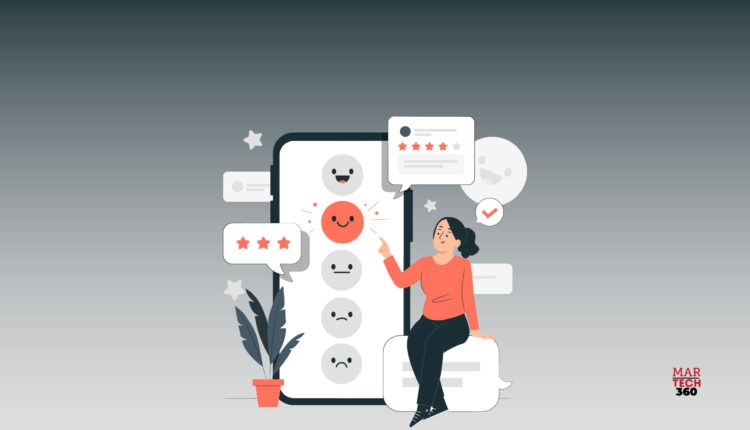In today’s business landscape, customer experience is a powerful differentiator. While factors like price and product quality have long been crucial, the experience a business provides is becoming the primary factor in attracting and retaining customers, even in the B2B (business-to-business) sector.
B2B customer experience (CX) is transforming business dynamics and reshaping customer expectations. A recent Deloitte study highlights that customers not only recognize the importance of CX but also value and embrace the experiences businesses provide. This shift directly correlates with improved growth and profitability for companies. Let’s dive deeper into B2B CX.
What is B2B Customer Experience?
B2B customer experience (CX) refers to the interactions, services, and overall satisfaction a business offers to its business customers. It spans all touchpoints throughout the customer journey, from the initial contact to post-purchase support. B2B CX is essential for building strong, lasting relationships, reducing churn, and fostering business growth. However, compared to B2C (business-to-consumer) CX, B2B comes with unique challenges due to intricate buying processes, long supply chains, and multiple stakeholders involved.
Why Does B2B CX Matter?
Here are several reasons why B2B customer experience is vital:
- Evolving Expectations: B2B buyers now expect the same personalized, seamless experiences they encounter in B2C environments.
- Customer Loyalty & Retention: A strong B2B CX can drive loyalty, repeat business, and positive referrals.
- Business Performance: Companies offering exceptional CX often outperform competitors in revenue growth and customer retention.
- Competitive Edge: Focusing on aspects like speed, consistency, and personalization can differentiate B2B companies and offer a competitive advantage.
- Customer-Centric Culture: B2B CX is key to fostering a customer-focused culture within an organization, encouraging ongoing improvements.
B2B vs B2C Customer Experience: Key Differences
The differences between B2B and B2C customer experiences can be summarized as follows:
- Target Audience: B2B CX focuses on businesses and their teams, while B2C targets individual consumers.
- Complexity: B2B support and experiences are more complex due to long sales cycles, multiple decision-makers, and detailed purchasing processes. B2C support is generally simpler.
- Relationship Focus: B2B CX centers on building long-term relationships, while B2C often focuses on short-term customer satisfaction to encourage repeat purchases.
- Personalization: B2B CX often tailors solutions at the company or account level, while B2C focuses on individual consumer needs.
- Marketing Strategies: B2B marketing is typically more focused on targeted content, relationship-building, and strategic advertising. B2C marketing emphasizes emotional connections and broad consumer appeal.
- Sales Cycle: B2B sales tend to have longer cycles involving multiple stakeholders, while B2C sales are quicker and often involve individual purchasing decisions.
Top B2B Customer Experience Trends in 2024
To stay competitive, businesses must adopt the latest B2B CX trends. Here are some of the key trends shaping customer interactions:
- Customer-Centric Experiences: Businesses are prioritizing personalized, human interactions that view customers as valued partners, not just sources of revenue. Companies that simplify processes and quickly resolve issues can better maintain customer loyalty.
- Self-Service Options: Customers appreciate the ability to resolve issues independently through self-service. Offering comprehensive knowledge bases, instructional videos, and chatbot assistance can empower customers and enhance their overall experience.
- Omnichannel Experience: Customers expect brands to engage with them across multiple channels, whether it’s email, text, or social media. Brands that meet customers on their preferred platforms can provide more seamless experiences.
How to Design a B2B Customer Experience Strategy?
Creating a successful B2B CX strategy is essential for delivering superior customer experiences. Research shows that 86% of buyers are willing to pay more for a better experience, and 96% say their experience impacts their likelihood of repurchasing. Here’s how to build a strong B2B CX strategy:
-
Establish a Customer Health Score: Benchmark your current customer relationships and identify areas for improvement by consolidating key metrics, such as customer tenure and engagement.
-
Gather Feedback: Focus on quality feedback rather than quantity. Actively seek input from your customers, tailor surveys to specific needs, and implement actionable steps based on feedback.
-
Understand the Customer Journey: Segment your customer base and analyze the stages of their journey—from awareness to decision-making. By optimizing each stage of the journey, you can increase the likelihood of conversion.
Final Thoughts on B2B Customer Experience
In today’s competitive environment, B2B customer experience plays a critical role in driving success. As more businesses recognize the importance of delivering exceptional, personalized experiences, the need to nurture strong customer relationships has never been greater. Companies that focus on creating seamless, personalized CX will not only foster customer loyalty but also drive sustainable growth. By investing in B2B CX, businesses can ensure their long-term success in an ever-evolving marketplace.
